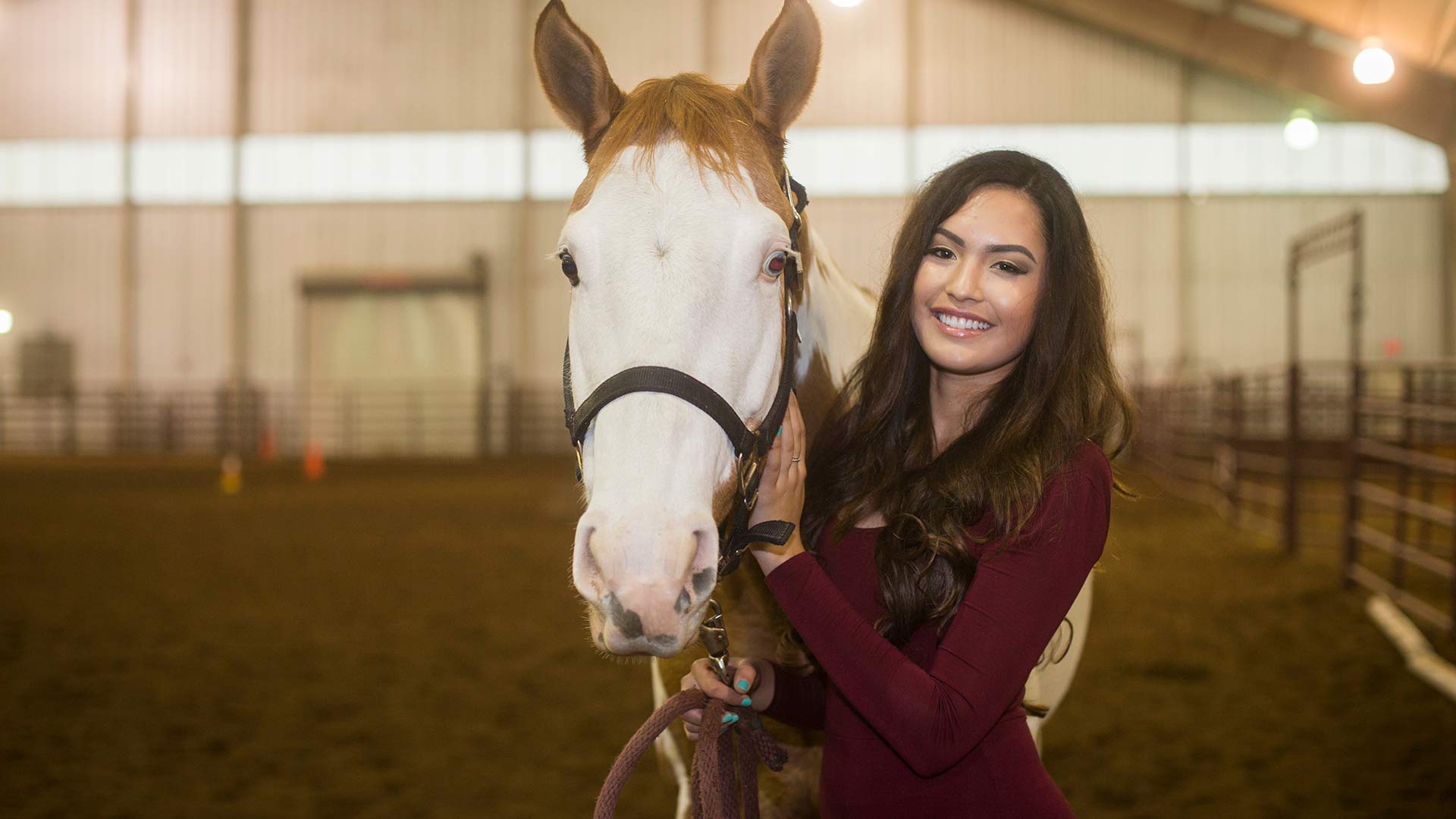Be a caretaker for animals

Do you love science, staying active and helping animals?
Make that your living.
Our pre-vet program can lead you toward your dream job: Being a veterinarian.

Do you love science, staying active and helping animals?
Make that your living.
Our pre-vet program can lead you toward your dream job: Being a veterinarian.
The work you do is like what physicians and doctors do for humans.
As a veterinarian, your top priority is to protect, promote and improve the health of animals – pets, livestock and others.
You diagnose conditions, treat issues and provide overall care. Job duties may include:
You can also perform surgery, address illness and injury and prescribe medication.
It doesn’t stop there – some veterinarians also expand into research, education and public health.
You need to complete a Doctor of Veterinary Medicine (DVM) degree at an accredited college or school of veterinary medicine.
You do this after you complete your required undergraduate courses.
In the United States, there are 33 accredited programs that offer a DVM degree. Our pre-veterinary program prepares you to apply to these accredited programs to complete your DVM degree.
Most pre-vet students at Missouri State go on to earn their DVM degree at Mizzou.
Wherever you choose to go, our pre-veterinary program prepares you to succeed.
Your pre-veterinary curriculum (courses) have a strong foundation in science, which gets you ready for what you’ll see in veterinary school.

Good news: If you decide to become a veterinarian, your services will be in high demand.
More and more veterinarians are reaching retirement age. Not enough new veterinarians are entering the job market.
17%
$99,000
The most common workplaces are hospitals and private clinics.
But you’re not limited to just there.
Potential job settings with a DVM degree include:
You can work indoors, outdoors or in remote settings.
An important part of our pre-vet program: It prepares you for other animal-related careers.
If you take pre-vet but end up deciding veterinary medicine isn’t for you, you’ll still have a strong backup plan to do something else.
Through pre-vet, you’re able to complete a bachelor’s degree in animal science.
Your bachelor’s degree helps you pursue other graduate programs or enter the workforce right away.